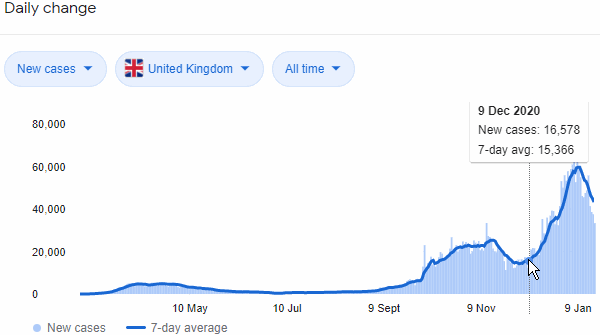Oil traders appear to be pinning their hopes on the colossal
stimulus package proposed by the incoming Biden administration, as there is a
possibility of a significant drop in demand due to new variants of the
Coronavirus.
The impact of the Coronavirus is far from being
managed in the West despite the optimism of the leaders. The vaccines have not
reached the status of magic bullets either.
In the UK, the daily death toll has hit above 1600,
the worst figure since the pandemic broke out; the infections are tantalisingly
high too.
In these circumstances, the possibility of easing
lockdowns in a matter of weeks is almost zero. That means less traffic on the
road as movements are restricted in proportion to rising infections.
In this context, the demand for oil will suffer, as
predicted by the leading energy watchdogs.
This must be the thinking behind the Saudis in
cutting down the output by 1 million barrels for February and March, in order
to maintain the price of crude oil above $50 a barrel.
The move has not gone down very well with India, one
of the biggest customers of oil in the region. Indian Petroleum minister did
not mince his words when he said the move was confusing for the region.
At the height of the pandemic last year, Saudis cut
down on the crude oil price for Asia, while maintaining its output in order to
supply the region with the commodity.
The sudden policy reversal by Saudi Arabia has
caught India unguarded as the prices at the pump started rocketing after
hearing the news.
The Indian minister even warned that unilateral
moves of this kind may force India to look for renewable sources to complement
its energy needs.
The rise of oil price has, meanwhile, prompted the
shale oil producers to get back to action. The members of the OPEC may hope
that the campaign promise made by Mr Biden to ban fracking ban on federal
lands, could potentially slowdown the flooding
the markets with excess oil.
All in all, OPEC has to walk a tightrope: on one
hand, its members have to shore up their economies with oil revenues; on the
other hand, it cannot let the hope of global economic recovery go up in smoke
by being too ambitious in pursuit of lost revenue.








